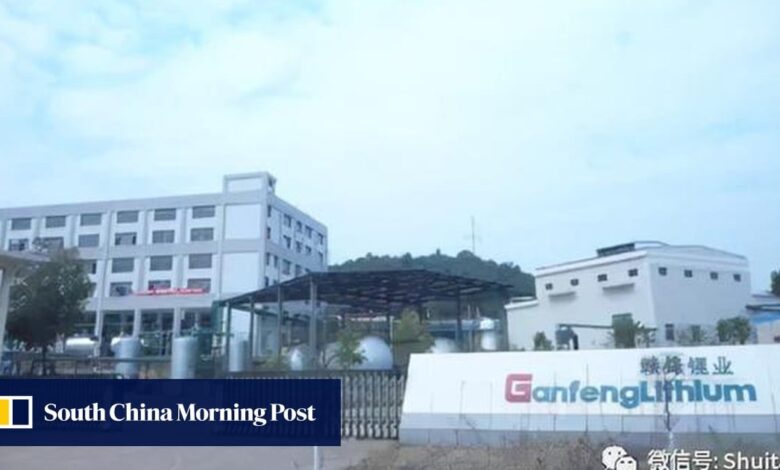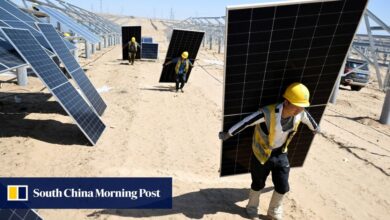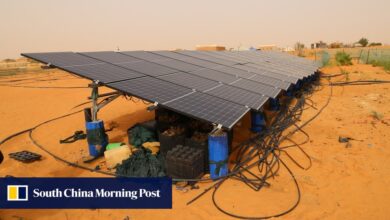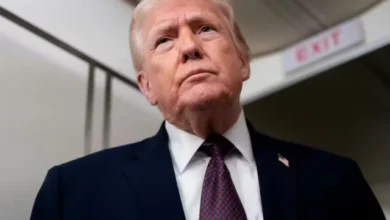Chinese lithium giant Ganfeng plans to trade derivatives to offset overseas risks

Ganfeng Lithium, China’s biggest producer of the key battery metal, plans to seek shareholders’ approval to engage in the trading of financial derivatives as a hedge against risks from its rapid overseas expansion.
The company, which had the world’s third-largest lithium production capacity last year, wants to trade derivatives including options and forward contracts, whose prices are linked to assets such as stocks, indices, commodities and interest rates, it said in a statement to the Shenzhen Stock Exchange on Tuesday. Trading can take place in both overseas and over-the-counter markets.
“Ganfeng’s overseas assets have increased as it pushed forward its globalisation drive,” it said. “The company and its subsidiaries plan to start trading derivative products to a suitable scale, to hedge its exposure to cross-border investment risks and overseas market volatilities.”
The daily maximum outstanding contract volume will be capped at 8 billion yuan (US$1.1 billion), and margin deposits will be subject to the same ceiling. The company will use its own financial resources for the trading.
Ganfeng’s shares closed 2.8 per cent higher at HK$17.48 in Hong Kong on Tuesday and 0.8 per cent higher at 28.8 yuan in Shenzhen.
Last year, Xinyu, Jiangxi province-based Ganfeng obtained a 12-month mandate from shareholders for up to 8 billion yuan of derivatives trading. Since no trading was conducted before the mandate expired last month, Gangfeng has to seek fresh approval.
Last year, Ganfeng derived two-thirds of its revenue from mainland China and the rest from overseas. Besides Mali, it also owns stakes in lithium projects in Mexico, Australia, Argentina and Ireland.
In China, the price of battery-grade lithium hydroxide fell to 82,300 yuan per tonne last Friday, a drop of 9 per cent from a month earlier, and 71 per cent lower than a year ago, according to Daiwa Capital Markets. Lithium hydroxide and lithium carbonate are the two main compounds used in the supply chain.
“The persistently weak price is prompting lithium producers to exit the market and other producers will either reduce or defer investments,” ANZ’s analysts said on Monday. “The supply overhang is not that large, and the fall in prices looks overdone.”
Ganfeng said last week it expected to report a net loss of between 760 million yuan and 1.25 billion yuan for the first six months of the year, compared with a profit of 5.85 billion yuan a year earlier. It cited lower product prices and asset write-down in its investment in Australia-listed Pilbara Minerals.
Source link




